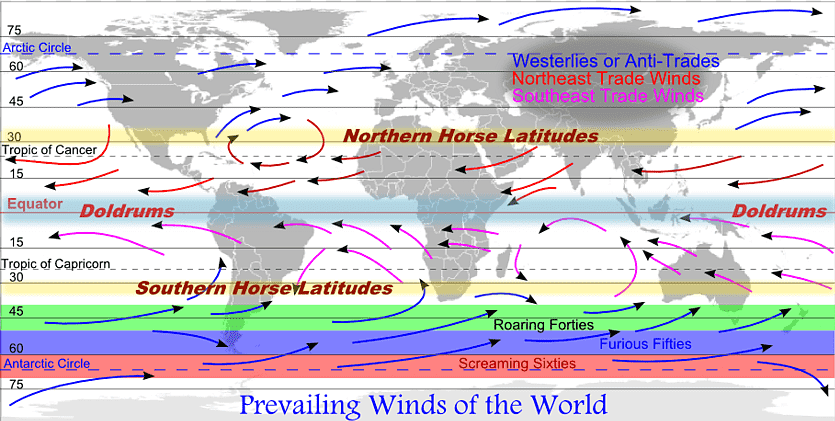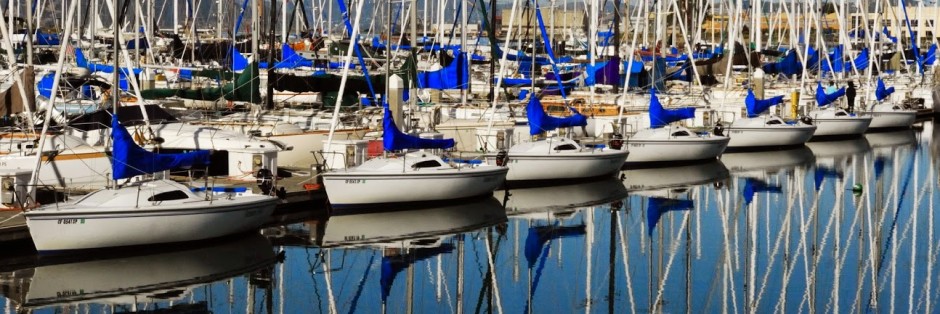
When last I wrote about the Doors’ song, Horse Latitudes, I was skeptical about the practice of jettisoning live horses at sea, or even dead ones, for these reasons: They could be used for food if all provisions had run low; they may revive in a rainstorm if the ship was low on water; they were among many animals transported to America, so it’s puzzling that horses be singled out to be thrown overboard; I can find no cases of insurance claims for this cause; and the so-called Horse Latitudes are closer to Europe than the Doldrums, so provisions would be more likely to run out in the latter calms. Admittedly, the wide acceptance of the “jettisoning” account of the term’s derivation, and its mention in print as early as 1777, means we cannot completely rule it out. Still, more reasonable explanations exist.
One is that the phrase “dead horse month” referred to that time at the beginning of the voyage when the sailor was working off wages paid in advance. The ordinary seaman often spent this money before leaving, so at the beginning of his duties at sea he felt he was working for nothing. A ceremony, described in the Sailor’s Lexicon of 1867, was performed when wages finally began being credited to his account, at an area that came to be associated with the celebration. An effigy of a horse was dragged around the deck, hoisted to the yardarm, then cut away and cast adrift, all attended by much merriment.
Another explanation is that the area between Spain and the Canary Islands was called El Golfo de las Yeguas by the Spanish, meaning “the gulf of the mares.” This gulf is at about 35 degrees north, consistent with the Horse Latitudes. But this region is known for gales, not calms, and in any case, the question of why it is named after horses remains unresolved.
More often than not, the phrases of the sea were created by men who could not read or write. Many evolved for centuries before showing up in literature, which today is our only source of information. Some of you, enamored of the original macabre poetry from the pen of Jim Morrison, will stick with his reading. But as with many important issues in our sport, sometimes it is best to follow that great nautical sage Captain Ron, and wistfully confess that “nobody knows.”

Maybe they were thinking, whilst sweating buckets in the doldrums “I’d rather ride a dead horse than spend another %#^$&@% day on this boat”?